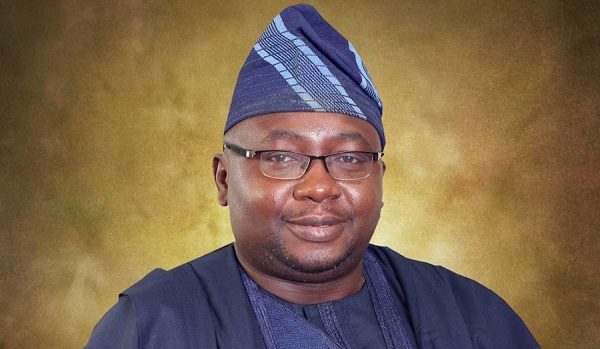News
Power Minister, Adelabu, identifies factors hindering effective power supply in Nigeria

The Minister of Power, Chief Adebayo Adelabu, has identified issues hampering effective electricity supply in Nigeria.
The minister while speaking to newsmen on Wednesday in Abuja, said the government was concerned over liquidity challenges facing the Nigerian Electricity Supply Industry (NESI), admitting that the debt in the sector had risen to over N4 trillion.
He added that resolving the liquidity challenges in the sector was critical to ensuring regular power supply to Nigerians.
According to him, with a legacy debt of N2 trillion, N1.3 trillion existing debt owed to generation companies and $1.3 billion gas supply debt, the sector was struggling to survive
He, however, noted that the government will have to decide on how electricity is paid for in the country either through a cost reflective tariff or subsidies.
He noted “the persistent liquidity issues coming from inappropriate tariff regime, poor collections and inadequate funding of government subsidies leading to huge debts owed to the transmission, generation and gas supply companies.
Read also: Top 10 stories from across Nigerian Newspapers, Thursday, February 15, 2023
“This has restricted investments required for sustaining supply flow, capacity expansion and infrastructural improvements. It has also not only discouraged lending to the sector by financial institutions as the sectoral activities are not bankable, but has also made the sector unattractive to new investors”.
Adelabu added that some of the solutions being considered by the government include “settlement of existing sectoral outstanding debt obligations to the gas supply and power generation companies using partly cash payment and guaranteed debt instruments. N1.3 trillion is current debts to the GenCos and $1.3 billion legacy debts to the GenCos.
“A national discourse on the nation’s perspective to Electricity supply, commercial product or social service. There must be an agreement across divides on how we define electricity.
“Depending on the outcome of the above, either implementation of a cost reflective tariff or a cashed backed Federal Government guaranteed subsidy funding regime to inject liquidity into the sector”, the minister said.
Join the conversation
Support Ripples Nigeria, hold up solutions journalism
Balanced, fearless journalism driven by data comes at huge financial costs.
As a media platform, we hold leadership accountable and will not trade the right to press freedom and free speech for a piece of cake.
If you like what we do, and are ready to uphold solutions journalism, kindly donate to the Ripples Nigeria cause.
Your support would help to ensure that citizens and institutions continue to have free access to credible and reliable information for societal development.




















